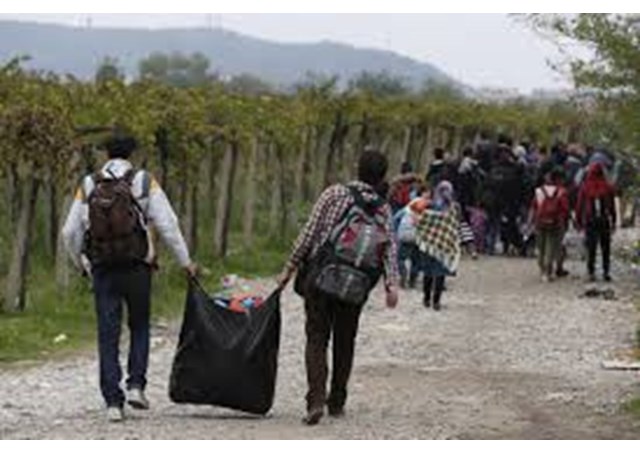
Caritas says situation of refugees in Europe 'unacceptable'

(Vatican Radio) Greece today called for sanctions to be imposed on European Union states that refuse to take in their share of refugees.
Hundreds of thousands of those who are flowing into the continent are trapped on the Greek border and the nation is struggling to provide basic humanitarian needs.
The Greek Prime Minister also demanded that procedures for relocating refugees should be drastically speeded up.
He promised to provide “dignified” living conditions for the more than 25,000 migrants trapped in Greece, but insisted that the solution can only be temporary and Greece will accept only its fair share of permanently resettled refugees.
Meanwhile the Catholic Church’s aid organization, Caritas, is on the border responding to the needs of the refugees and in the past months has provided chemical toilets and showers, while volunteers have handed out more than 80,000 bags of food and water, 4,000 raincoats and more than 2,000 backpacks.
The fact that the dire humanitarian situation is playing out as EU leaders continue to disagree on possible solutions is unacceptable” says Paolo Beccegato, vice-director of Caritas Italiana which is supporting the work of the local Caritas offices in Greece, Macedonia and Serbia.
Vatican Radio's Linda Bordoni’ spoke to Paolo Beccegato about the situation:
Beccegato says the internal conflicts between the member states of the European Union coupled with their incapacity to manage the situation in a coordinated way is falling on the shoulders of these people [the forced migrants] whose only fault is to be in need.
“They are asking only for peace in their land – they would be very grateful to go back to their homes” he said.
Beccegato says our leaders are not taking into due consideration the causes of the exodus and that it is “unacceptable” that we are unable to recognize their inalienable dignity and rights.
He explains that Caritas Italiana, and especially the Caritas Europa division, is backing the local Caritas organizations in Greece, Macedonia and Serbia with human and financial resources.
He says Caritas has been present on the ground in the area since the beginning of the refugee crisis as it had already activated projects, coordinated by the Rome Diocese and Greek parishes at a grass roots level, right from the start of the financial crisis that crippled Greece in 2012.
“We are trying to do our best, but it is just a drop, the bare minimum compared to the needs of these people” he says.
Asked what he would like to see on a political level Beccegato points to the need, in Italy, for a demographic increase in an aging nation which should be able to provide solid political programmes for integration which, in turn, would prove beneficial for everyone involved.
If we had high-thinking leaders – he says –they would be able to see that this situation could be turned into an opportunity for Italy, and for Europe.
He also points to the need for solidarity for these people who are escaping “for no fault of their own”.
Beccegato agrees that current European legislation regulating the movement of refugees needs to be radically changed and points out that it even impacts negatively on providing humanitarian assistance.
This is a sign of the times, Beccegato says: “they [the refugees] are here with us, they are our brothers and sisters, they are families, they need our mercy, we need the mercy of God, and we need their mercy, because looking at them we are looking at our Lord”.
| All the contents on this site are copyrighted ©. |


